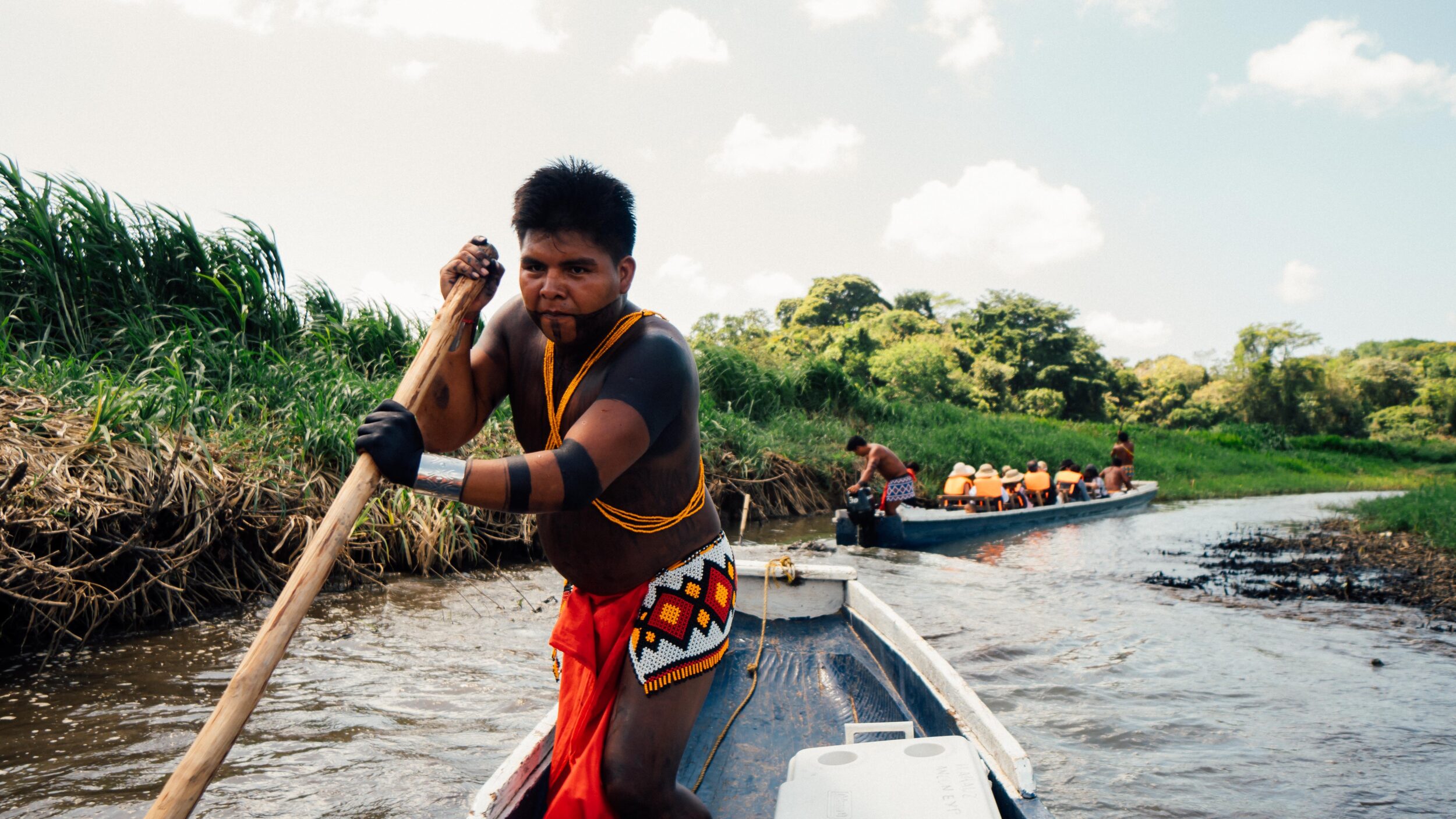
The Race to Save the World’s Disappearing Languages
There are marvelous things that exist before and had great importance in the life of our forefathers. It is sad to know that the language our ancestors spoke and shaped their destiny is now gone because we did not take much effort to save them or for some did not take much attention to enrich our mother tongue.
Every two weeks a language dies. Wikitongues wants to save them.
On a residential block at the border between Brooklyn and Queens, Gottscheer Hall appears like a mirage from 1945.
Blue awnings advertise the space for weddings and events. Inside, an entryway is covered with the saccharine smiles of “Miss Gottschee” contestants from decades past. “Back then you had to know the language to compete,” says 92-year-old Alfred Belay, pointing out his daughter’s beaming face from the 1980s. Nowadays, there are years with only a single contestant in the pageant.
Belay has been coming to Gottscheer Hall since he arrived in America more than 60 years ago. Then, the neighborhood was filled with refugees from Gottschee, a settlement that once occupied the highlands of modern-day Slovenia. Now, he’s one of a few thousand remaining speakers of its language, Gottscheerisch. Every Christmas he leads a service in his 600-year-old native language that few understand.
“Imagine if someone who plays music suddenly can’t use their fingers,” he says. “We’re still alive but can only remember these things.”
Belay and his sister, 83-year-old Martha Hutter, have agreed to let 26-year-old Daniel Bogre Udell film them having a conversation. They walk past the dark wood bar of Gottscheer Hall serving pretzels and sausages, and they climb the stairs to an empty banquet room. Bogre Udell sets up his camera and the siblings begin to banter in their inscrutable Germanic mother tongue.
Slip of the Tongue
Hearing such a rare language spoken on a residential block of Queens is not unusual for Bogre Udell, the co-founder of a nonprofit called Wikitongues. There are some 800 languages spoken within the 10-mile radius of New York City, which is more than 10 percent of the world’s estimated 7,099 languages. Since he has decided to record all of them, the melting-pot metropolis is a natural launching point.
Bogre Udell, who speaks four languages, met Frederico Andrade, who speaks five, at the Parsons New School in New York City. In 2014, they launched an ambitious project to make the first public archive of every language in the world. They’ve already documented more than 350 languages, which they are tracking online, and plan to hit 1,000 in the coming years.
“When humanity loses a language, we also lose the potential for greater diversity in art, music, literature, and oral traditions,” says Bogre Udell. “Would Cervantes have written the same stories had he been forced to write in a language other than Spanish? Would the music of Beyoncé be the same in a language other than English?”
Between 1950 and 2010, 230 languages went extinct, according to the UNESCO Atlas of the World’s Languages in Danger. Today, a third of the world’s languages have fewer than 1,000 speakers left. Every two weeks a language dies with its last speaker, 50 to 90 percent of them are predicted to disappear by the next century.
In rare cases, political will and a thorough written record can resurrect a lost language. Hebrew was extinct from the fourth century BC to the 1800s, and Catalan only bloomed during a government transition in the 1970s. In 2001, more than 40 years after the last native speaker died, the language of Oklahoma’s Miami tribe started being learned by students at Miami University in Ohio. The internet has connected rare language speakers with each other and with researchers. Even texting has helped formalize languages that don’t have a set writing system.
Knowing they wouldn’t be able to record, or even locate, the majority of these languages themselves, Wikitongues has enlisted a network of volunteers in 40 countries to film native speakers talking in the past, present, and future tenses of their mother tongue. To get a range of tones and emotions, they’re asked to reminisce about childhood, talk about romance, and discuss their hopes and goals.
One volunteer in the South Pacific islands of Vanuatu recorded a language that had never before been studied by linguists. Another tracked down a speaker of Ainu, a rare indigenous language in Japan that is an “isolated,” meaning it bears no relation to any other known language.
Wikitongues isn’t the only initiative working to document rare languages. National Geographic Society’s Enduring Voices project supported the Living Tongues Institute for Endangered Languages in their effort to build Talking Dictionaries comprised of definitions, audio files, and images. Someone looking to learn Tuvan, a Turkic language spoken in Siberia, can download the app to their phone.
Starting this year, Wikitongue’s collections will be stored at the American Folklife Center through a partnership with the Library of Congress. But their goals stretch past documentation—the founders also plan to provide a way to learn languages long after they’ve gone extinct. An app they’re building called Poly allows people to create language dictionaries using text, audio, and video.
Missing Words
Priceless documentation opportunities disappear regularly. Not long ago, one of the last two speakers of a Saami language dialect in the Russian steppes died right before his recording session with Wikitongues. Some 500 languages could slip through their grasp in the next five years, they estimate.
Political persecution, a lack of preservation, and globalization are to blame for the dwindling language diversity. For much of the 20th century, governments across the world have imposed the language on indigenous people, often through coercion. Some 100 aboriginal languages in Australia have disappeared since European settlers arrived. A half-century after China annexed Tibet, dozens of distinct dialects with unique alphabets are on the verge of extinction. Studies have shown that suppressing language impairs everything from health to school performance.
This forced suppression, however, is no longer the biggest threat facing our linguistic ecosystem. “Most languages die today not because of abject and outright persecution—though this does happen on occasion—but rather because they are made unviable,” says Andrade. Factors like climate change and urbanization force linguistically diverse rural and coastal communities to migrate and assimilate to new communities with new languages.
“This form of language loss is cancer, not a gunshot.”
For Future Generations
In Gottscheer Hall, Belay and Hutter transform as they chatter for Daniel Bogre Udell’s video camera. At one point Hutter breaks into song. In Gottscheerisch, they recall growing up in a single bedroom home where they spoke Gottscheerisch—German was used for school and church.
In 1941, Gottschee was annexed by the Italians and its residents were sent to resettlement camps. Four years later, the Gottscheer Relief Association opened its doors to the thousands of immigrants arriving in New York. By the time Belay and Hutter arrived, in the 1950s, the neighborhood was so full of immigrants that Hutter was barely able to practice her English.
The newcomers spoke Gottscheerisch to each other and raised their kids with English. Now, 60 years later, Belay has started speaking to his kids in Gottscheerisch for the first time, but the language is on the brink of extinction.
As a street language, Gottscheerisch was rarely written down. It could only be learned by ear until 1994 when Hutter published a five-year effort collecting definitions for 1,400 words: the first English-Gottscheerisch dictionary.
“The old Gottscheers were convinced that nobody can learn Gottscheerisch, so they didn’t try to teach it,” Hutter recalls. “But any language can be learned, so I thought, ‘This old language is going to die and they won’t know anything.’”
“We did the same thing,” Belay interjects. “Our kids could have learned it.”
“There is a time in the future when families won’t speak it,” says Hutter. “When they’ll say, ‘Our family spoke—what was it?’”
Read more at news.nationalgeographic.com
BY NINA STROCHLIC




